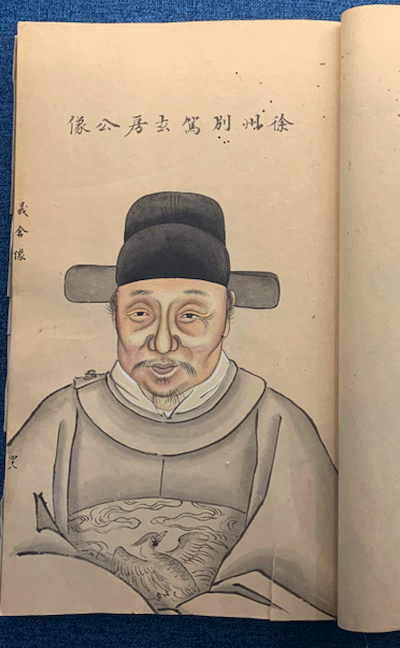Do you have at least some Chinese ancestry? If so, you will be interested in the following article written by Huang Wei and published in the SixthTone web site:
Last fall, when the Shanghai Library opened a massive new branch in the city’s Pudong District, headlines tended to focus on two things: its size and architect Chris Hardie’s design, which included exhibition, performance, and event spaces in addition to the customary stacks.
 Somewhat lost in all this was the library’s collection, one of the driving reasons for the expansion in the first place. (Full disclosure: As an employee of the library, I am responsible for some of that collection.) In particular, the Shanghai Library is home to arguably the world’s top collection of Chinese genealogies, including more than 300,000 volumes of nearly 40,000 different genealogies, totaling 456 surnames.
Somewhat lost in all this was the library’s collection, one of the driving reasons for the expansion in the first place. (Full disclosure: As an employee of the library, I am responsible for some of that collection.) In particular, the Shanghai Library is home to arguably the world’s top collection of Chinese genealogies, including more than 300,000 volumes of nearly 40,000 different genealogies, totaling 456 surnames.
A genealogy is a historical document that records the lineage of a blood line descended from a single ancestor, the blood relationship between family members, and a family’s assets and customs. They can include depictions of famous family members from history, textual research on the origin of a family’s surname, clan rules and regulations, information on the construction of ancestral halls, even poems. Genealogies of famous families often contain archives of special records, including imperial edicts, orders, and letters given by emperors to officials in the family. (One thing they do not typically include are records pertaining to female members of the family.)
Last fall, when the Shanghai Library opened a massive new branch in the city’s Pudong District, headlines tended to focus on two things: its size and architect Chris Hardie’s design, which included exhibition, performance, and event spaces in addition to the customary stacks.
Comment by Dick Eastman: I visited the Shanghai Library's genealogy collection 38 years ago. That was long before the expansion to the Pudong District location. While somewhat impressive at that time, the collection has since been expanded greatly and I am hoping to make a return visit to the new location before long.
Somewhat lost in all this was the library’s collection, one of the driving reasons for the expansion in the first place. (Full disclosure: As an employee of the library, I am responsible for some of that collection.) In particular, the Shanghai Library is home to arguably the world’s top collection of Chinese genealogies, including more than 300,000 volumes of nearly 40,000 different genealogies, totaling 456 surnames.
A genealogy is a historical document that records the lineage of a blood line descended from a single ancestor, the blood relationship between family members, and a family’s assets and customs. They can include depictions of famous family members from history, textual research on the origin of a family’s surname, clan rules and regulations, information on the construction of ancestral halls, even poems. Genealogies of famous families often contain archives of special records, including imperial edicts, orders, and letters given by emperors to officials in the family. (One thing they do not typically include are records pertaining to female members of the family.)
It may seem curious, given the long history of genealogies in China, that so many would wind up in Shanghai — not a city known for its connection to traditional culture. After the founding of the People’s Republic of China, the collection of genealogies largely paused. Except for 1950 and 1951, when a small number of genealogies compiled before 1949 were printed, the genealogical record went blank for more than two decades. Genealogies were labeled “feudal” accomplices to the patriarchal system, those who compiled them ran the risk of being accused of nostalgia for the old China, and many volumes were sent to pulp mills.
With thousands of years of history at stake, a Shanghai librarian named Gu Tinglong took a risk and organized a team to rescue as many genealogies as they could from being chemically pulped or thrown into landfills. Their work accounts for two-fifths of the Library’s current collection, with the rest coming from acquisitions made since the 1960s.
You can read the full article by Huang Wei at: https://www.sixthtone.com/news/1012694.
 Latest News Articles
Latest News Articles If you do not see a Plus Sign that is labeled "Add comment," you will need to upgrade to either a (FREE) Standard Edition or a (paid) Plus Edition subscription
If you do not see a Plus Sign that is labeled "Add comment," you will need to upgrade to either a (FREE) Standard Edition or a (paid) Plus Edition subscription